|
An International Webinar was conducted at Council Hall, Narayana Medical College Campus on 20th July, 2020 from 10.30 am to 1.00 pm. The following panel of experts discussed the Blended learning in Medical Education and Types of E-Assessment Packages.
Panelist:
Speaker: Dr. Noohu Abdullah Khan, Assistant Professor, Clinical Pharmacy, King Khalid University (KKU), Kingdom of Saudi Arabia (KSA).
Topic: Computerised Assessment & Blended Learning in Medical Education
Speaker: Dr. Ayyub Ali Patel, Assistant Professor, College of Medicine, Dept. Clinical Biochemistry, KKU, KSA.
Topic: Types of E-Assessment Packages. (Common features and Differences)
Convenor: Dr. Sivakumar Vijayaraghavalu, Professor and Head, Narayana Translational Research Centre (NTRC) has introduced the invited speakers to the participants and gave a brief overview about the speakers.
Patron: Dr. Surya Prakash Rao, Professor and Dean, delivered the inaugural speech. He highlighted the importance of blended learning in medical education (conventional & e-learning) during this COVID -19 crisis. As well he emphasized that the faculties and students to cope-up with e-learning technologies and pass with bright colors. He also congratulated the organizing departments (IQAC & NTRC). Further he stated that the participants will be able to gain knowledge on blended learning and types of e-assessment packages and thanked them for taking part in this webinar. Post the inaugural speech, Dr.Noohu Abdullah Khan started his talk with the thanking note to- the management, – dean and –convenor. Then he outlined about his oral presentation with the following headings – teaching & learning, blended teaching & learning, effective use of pedagogy in practice, active learning, assessment methods in blended approach, current Indian scenario of e-learning and finally he concluded with the take home message.
Teaching & learning – under this subheading – he was talking about the current scenario that forced us to transform from conventional learning to new pedagogy with technology. He also stated the challenges associated with e-learning, 1. This new niche creates stress and anxiety among teachers and learners; 2. It needs hefty investment to purchase software and hardware; thereby it is a financial burden for institutions and not all the institutions in India can afford it.
He defined the following methods of teaching – face to face teaching, Blended approach, complete online approach. He discussed the merits and demerits of all the three modes of teaching. Further his talk was majorly focused on blended learning. In blended learning he was explaining about active learning. It is the process of having students engaging in activities that forces them to reflect upon ideas and innovate it. He also elaborated on strategies such as flipped class room, team based learning (TBL), and problem based learning (PBL) and E-assignments (text and video). Also he discussed about the one-minute paper (OMP) alternatively known as the ‘minute paper’ or ‘half-sheet response’ is typically assigned at the end of the class and requires each student to write down answers in 60 seconds or lesser. Post the test, the lecturer evaluates the answers and responds to it in the next class or privately on an individual basis. Think-pair –share is the another active learning strategy explained by him; it was developed by Frank Lyman, a professor at the University of Maryland in 1981; it is a collaborative learning strategy where students work together to solve a problem or answer a question about an assigned reading. It requires students to think individually and share the ideas with their classmates.
He explained about the e-learning software (blackboard [Bb]) which they were using for more than a decade in their institution; hence they were able to adapt easily and do online teaching during this pandemic.
However, this also has its own challenges that includes lack of internet in the rural areas, hardware failure etc. In India, only 4.4% of the rural households have computers and 42% in urban areas, the result was somewhat shocking and the challenge to overcome. He concluded his session with take home message “Never Stop learning; life never stops us teaching”.
Post this talk our dean Dr. S.P. Rao, added some comments on the topic which is as follows – he congratulated the speaker and told that they are using the best platform (Bb) in e-learning.
However, Bb needs to be purchased and that cannot be affordable in resource constrained institutions in many developing and under-developed countries. So considering the pandemic crisis the learning software cost should be reduced to the affordable level or it should be made free. Currently we are using Moodle (free software) and it has most of the options described by the speaker. Our dean further stated that we are using the moodle for past six months and it is highly useful. He was more concerned about the online examination and methods to prevent the malpractices by students. To avoid copying the answers from text-books or from online sources, dean proposed an idea to nominate the parents as the invigilators. This idea was highly appreciated both by the speakers and participants.
Dr. Noohu Abdullah Khan thanked our dean and appreciated for his idea of requesting parents to be exam invigilators.
The convenor introduced the second speaker Dr. Ayyub Ali Patel to the audience and requested him to deliver his talk on Types of E-Assessment Packages (common features and differences)
Dr. Ayyub Ali Patel, briefed about different type of E-assessment packages which offer paperless solutions to various types of formative and summative assessments. He discussed about different types of E-assessment packages available to educational institutes. Some e-assessment packages are fully online cloud based. Popular examples are Bb Learn and Moodle Learning Management Systems, it offers either free open license or paid license with 24/7 technical support. Examsoft with its secure application Exemplify is another cloud based software; it disconnects the internet connection during the examination time and resumes it back while submitting the answers. Thereby it is advantageous in preventing the students copying from the online sources. The uploaded assessments are safely stored in the Examsoft’s servers. Hence it functions as partly online and partly offline.
The Question mark software offer offline question bank package and it can be stored in the local personal computer(s). The software also offers new features like exam proctoring using audio and video. The fully localized intra-net based e-assessments are offered by LAN exam maker (software). It overcomes the common challenges faced by cloud based software such as server overload, slow net connection and frequent net disconnections etc. The larger multimedia files can also be easily incorporated into assessment questions on a LAN based system and security of the assessments will be better controlled. The presentation was followed by Q & A session; questions from the participants were answered by Dr. Ayyub. Our Dean also appreciated his presentation. Then finally the webinar was concluded with vote of thanks by Dr. Sivakumar Vijayaraghavalu.
Registrants – 428. All the participants commented it as the very useful webinar and one of a kind.
|
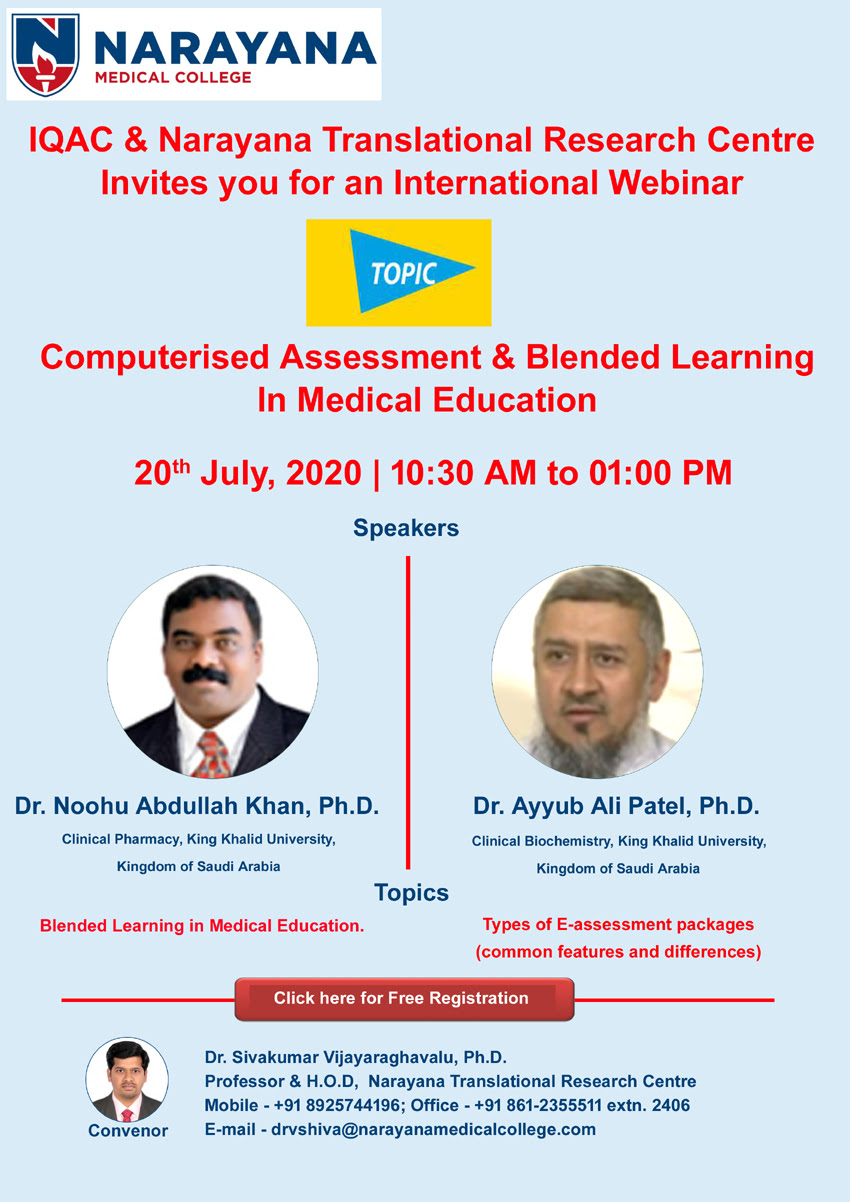
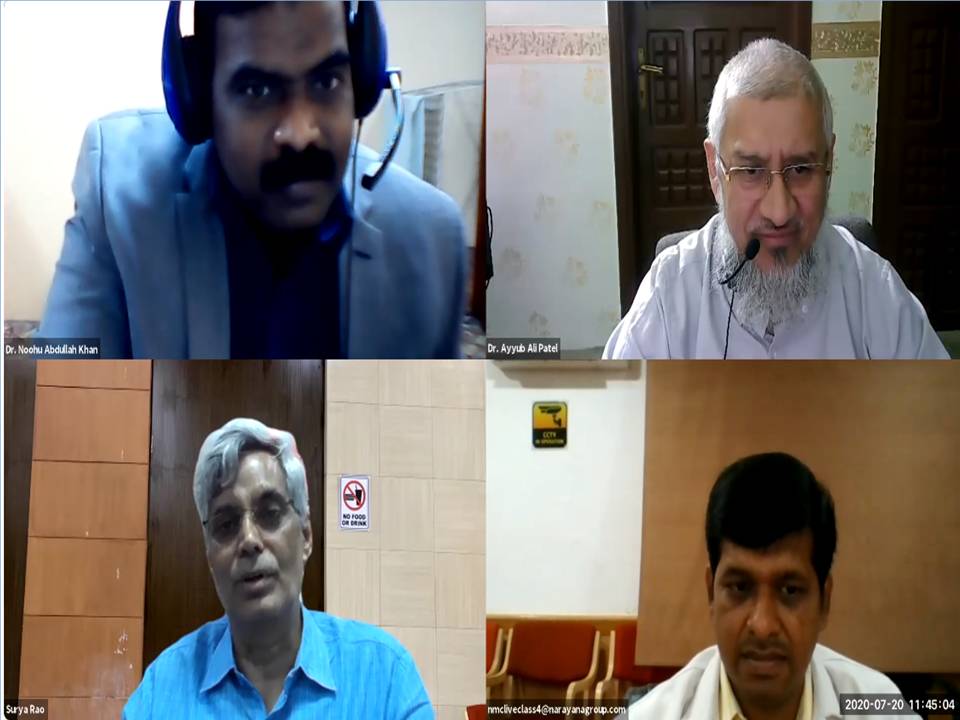
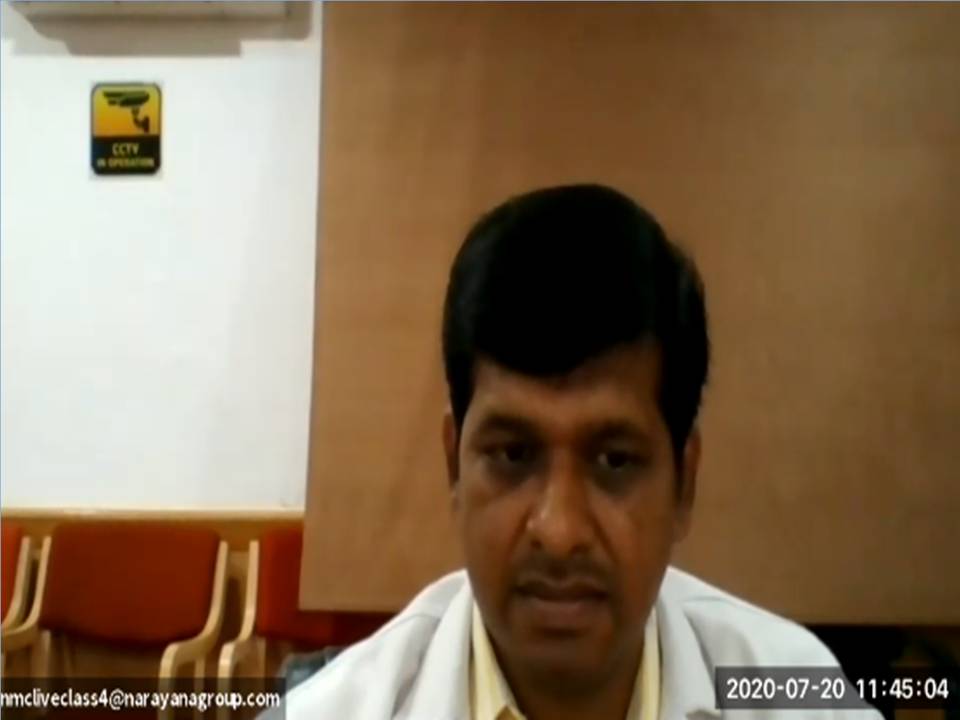
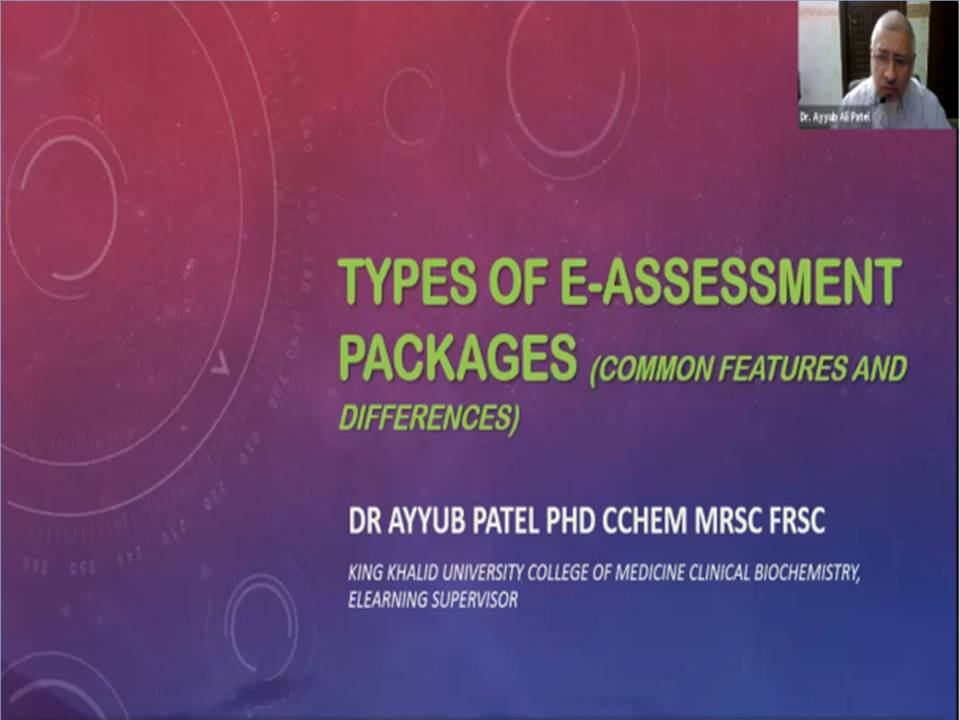
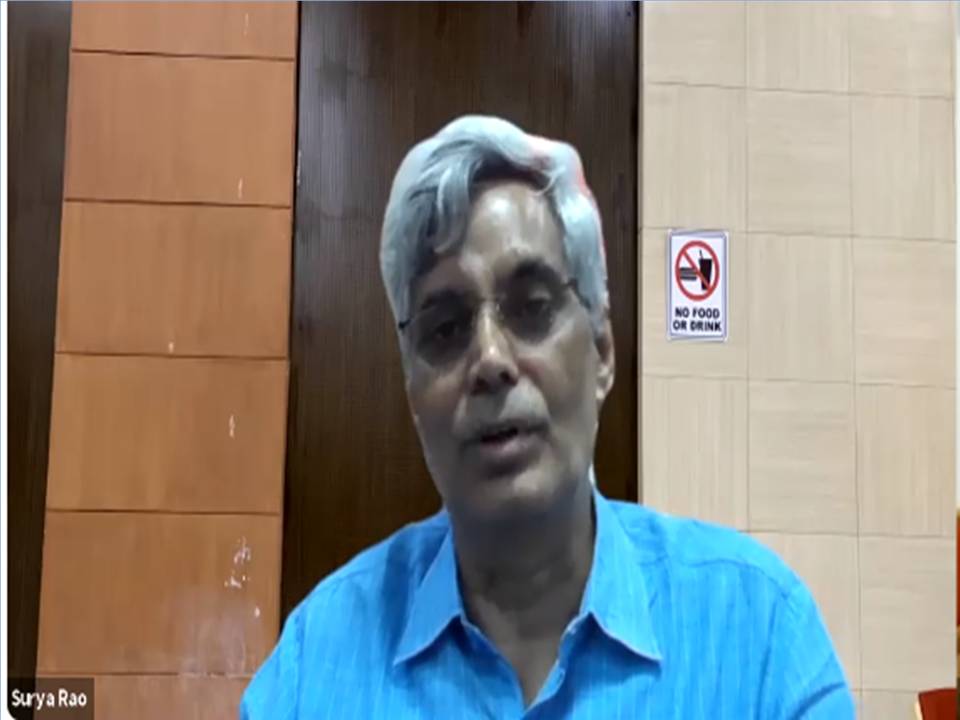
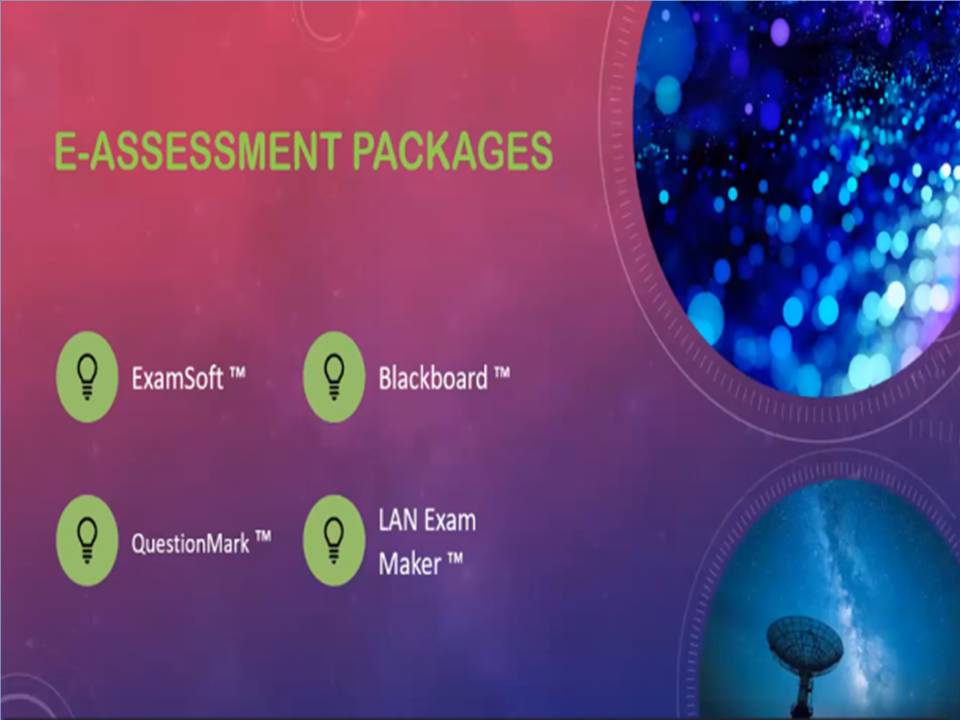
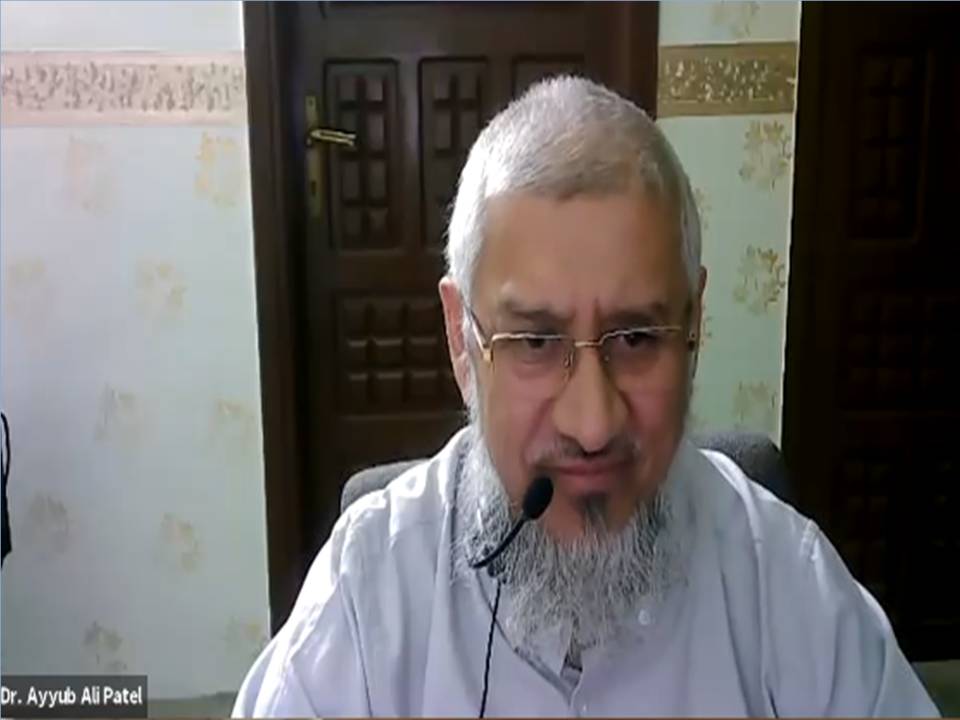
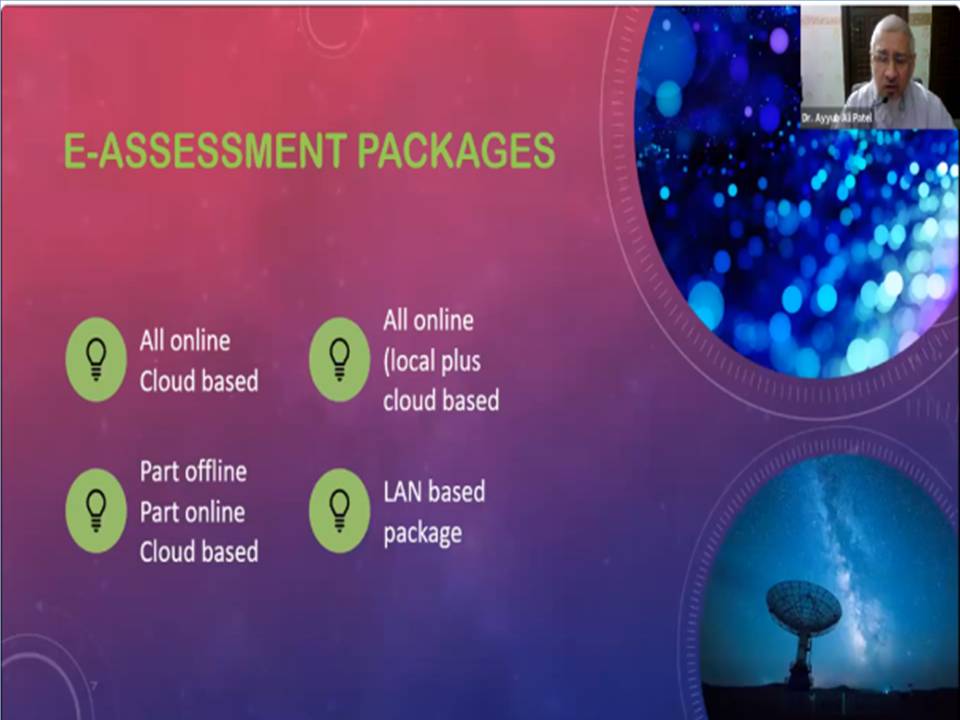
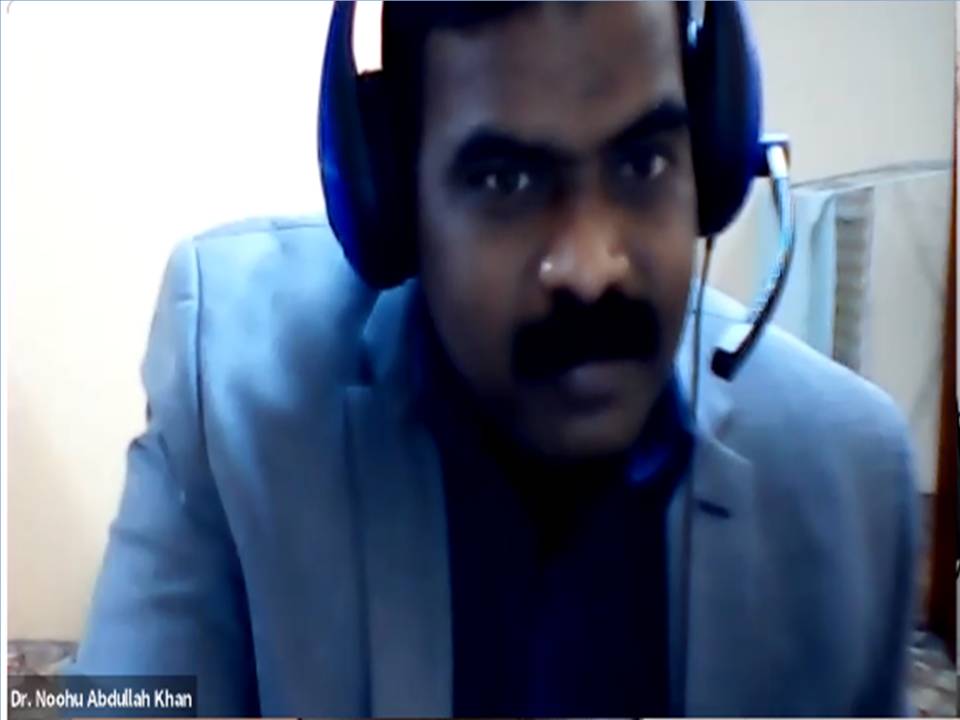
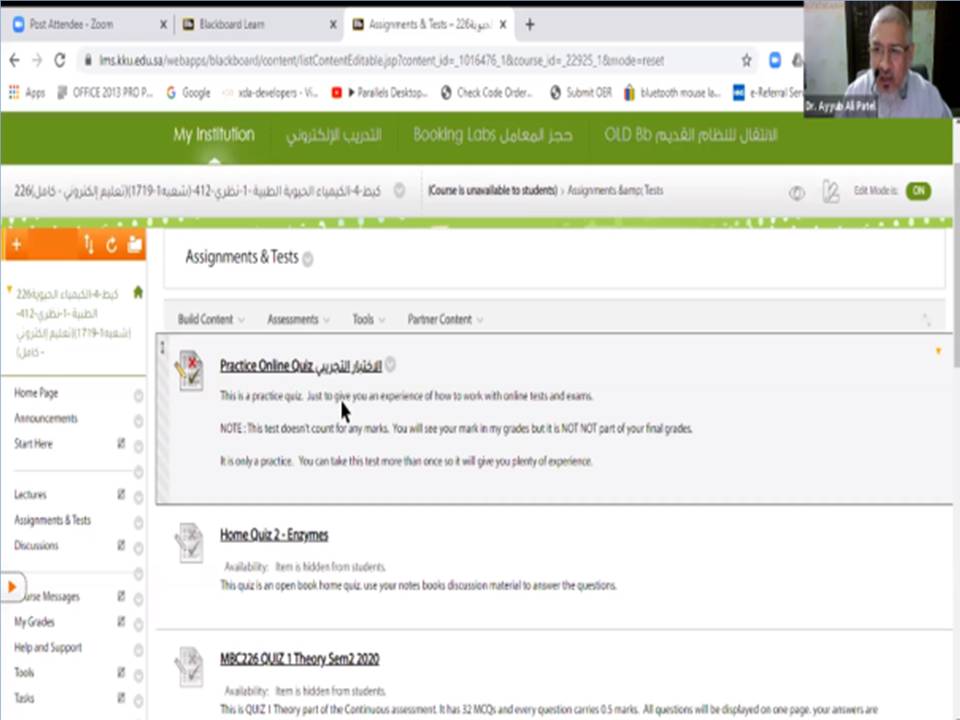
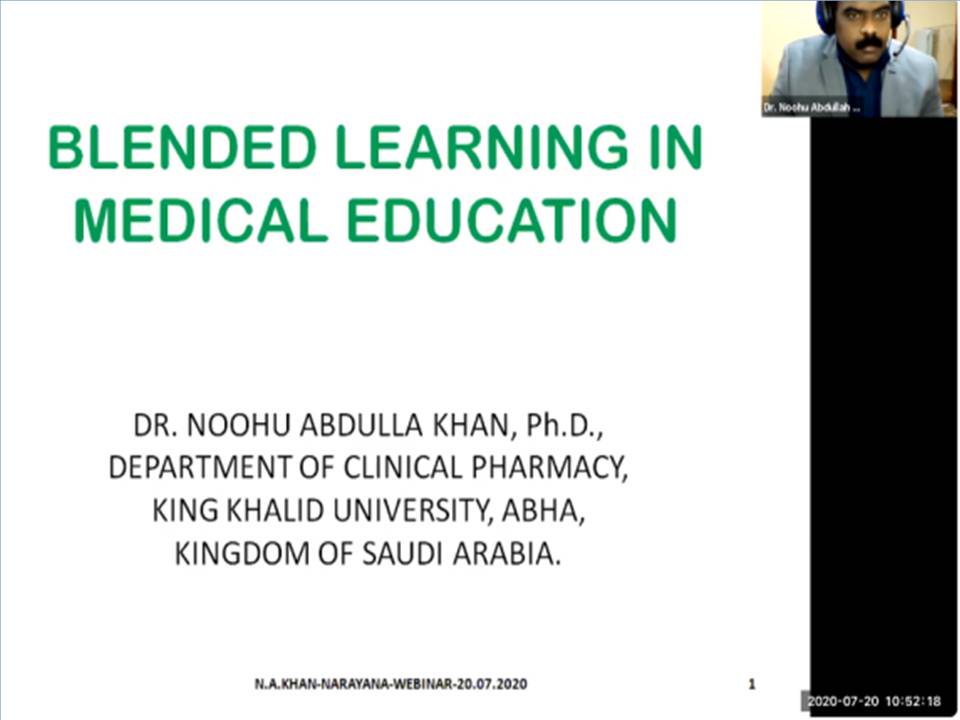
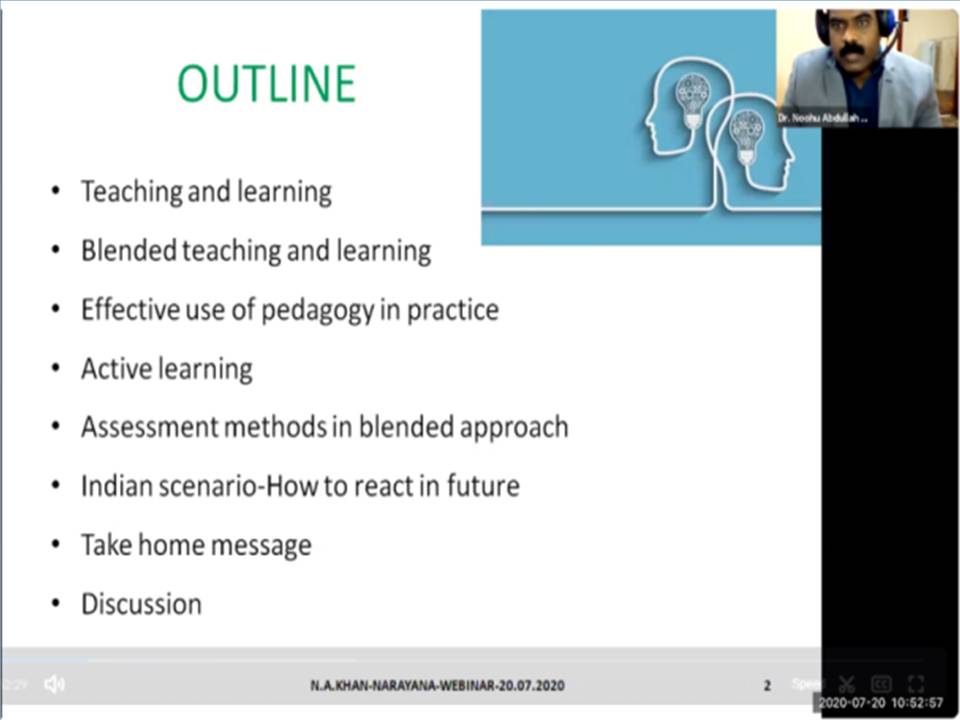
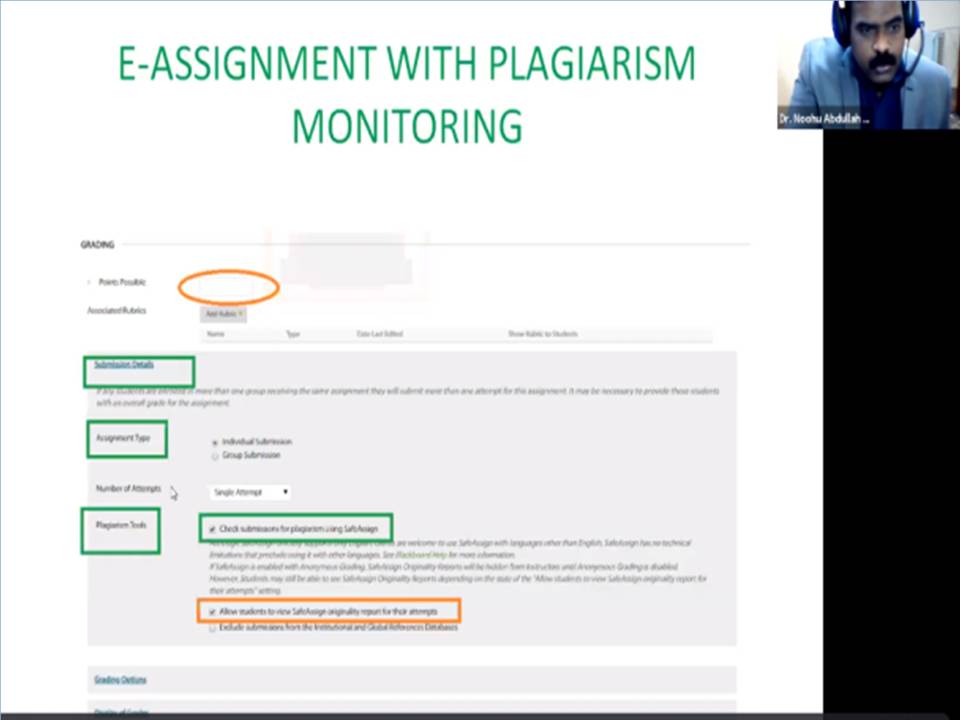
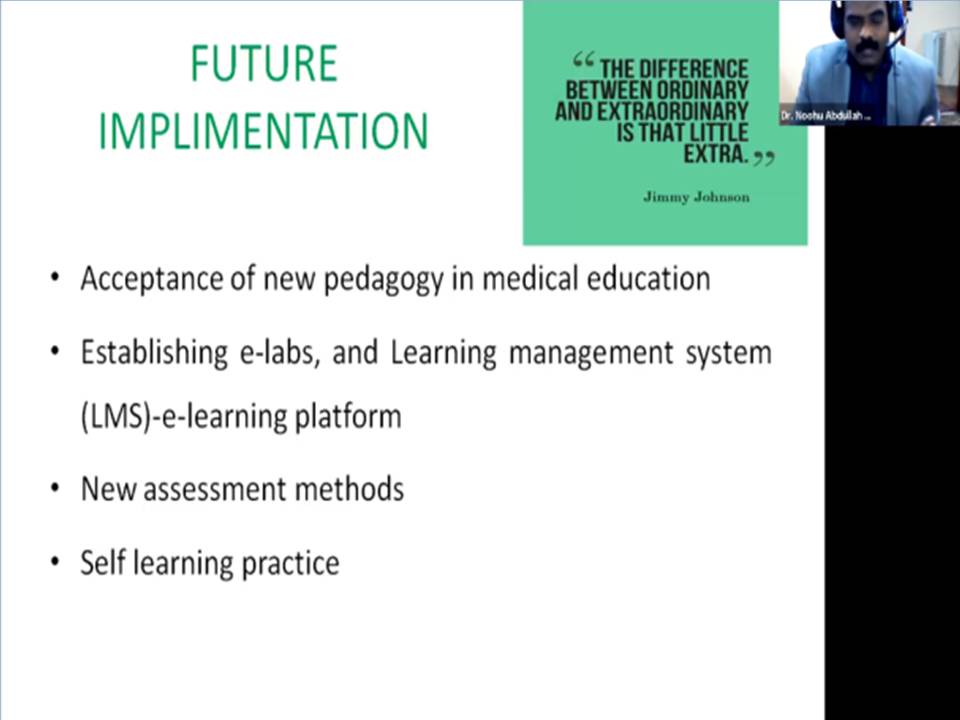

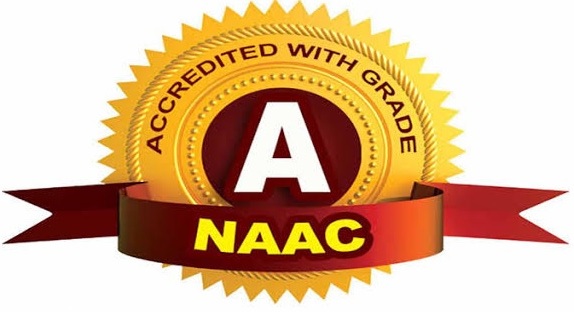
 CINEC
CINEC